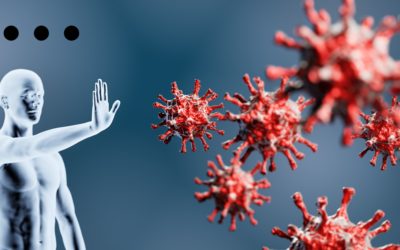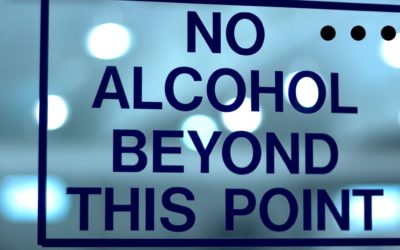Alcoholics are often unable to recognize, understand, and respond to their own emotions, as well as those of the people with whom they have relationships. This in turn causes them to have difficulty expressing love and affection. Their emotional impairment hinders...
Alcohol
Alcohol addiction treatment is designed to help individuals overcome their dependence on alcohol and return to a healthy lifestyle. Treatment typically involves a combination of therapies, medications, and lifestyle changes. Cognitive-behavioral therapy (CBT) is one of the most commonly used forms of treatment for alcohol addiction. CBT works by helping individuals identify and modify behaviors and thoughts that lead to excessive drinking. In addition, medications may be used to reduce cravings and withdrawal symptoms. Examples of medications used for alcohol addiction treatment include naltrexone and acamprosate (Lintzeris et al., 2020).
Lifestyle changes are also important in alcohol addiction treatment. These changes may include avoiding triggers that lead to drinking, such as certain people or places, as well as engaging in activities that promote sobriety. Exercise, nutrition, and stress management are also important components of treatment. Finally, support from family and friends can be invaluable in helping individuals sustain their recovery (Mackay et al., 2017).
In addition to the above treatments, there are a number of additional resources available for individuals struggling with alcohol addiction. These include support groups, such as Alcoholics Anonymous, and residential treatment programs. Treatment programs often combine various therapies and medications with individual and group counseling (Kranzler et al., 2016).
Overall, alcohol addiction treatment is a multi-faceted process that can help individuals overcome their dependence on alcohol and achieve long-term sobriety. With the right combination of therapies, medications, lifestyle changes, and support, individuals can successfully manage their addiction and regain control of their lives.
Explore the articles below for more information, resources, and guidance on alcohol addiction, treatment, and recovery.
References:
Kranzler, H. R., Burleson, J. A., Delucchi, K. L., & McKay, J. R. (2016). Treatments for alcohol use disorder: A review of the evidence. Neuropsychopharmacology, 41(1), 294–312. https://doi.org/10.1038/npp.2015.203
Lintzeris, N., Gartner, C. E., Bruno, R., Campbell, G., Larance, B., Mattick, R., … & Degenhardt, L. (2020). Medications for Alcohol Use Disorder: A Review. Journal of Addiction Medicine, 14(3), 155–166. https://doi.org/10.1097/ADM.0000000000000541
Mackay, S., Stockwell, T., & Chikritzhs, T. (2017). A systematic review of interventions for the treatment and management of alcohol use disorder and comorbid mental health conditions. Addiction, 112(7), 1164–1179. https://doi.org/10.1111/add.13685
Does Alcohol Weaken Your Immune System?
Heavy drinking, especially long-term heavy drinking, has seemingly endless adverse effects on your health. One is the complex damage it does to your immune system, the series of organs that work together to protect you from disease. This article will explore the...
Dry January: Who, What, When & Why
As the year closes, people start to think about their New Year’s resolutions. Often, they are related to health and wellness topics like nutrition, exercise, and alcohol use. Over the past decade, not drinking during January has become an increasingly popular New...
New Year, New Goals
It's never too early for a new years resolution. In reality, it doesn’t have to be a new year to make a change for the better but, the turn of a new year always brings prosperity and hopes for change. This could be the reason millions of Americans participate in Dry...
3 Most Common Relapse Triggers
Relapsing is a common occurrence in addiction recovery, with rates similar to those of other chronic diseases like diabetes and asthma. While it’s nothing to be ashamed of, relapsing can be dangerous (people overestimate their tolerance after being sober for a period,...
What Are the Stages of Alcoholism?
Fighting alcoholism is quite a daunting task. The process starts by accepting a few truths; the most important is that alcoholism is a progressive problem. The condition doesn't develop in one day; instead, the downfall has certain stages. Casual dependence, then...
Common Body Changes After 1 Year Sober
Whether you realized it or not, drugs and drinking take a major toll on the body. In extreme cases of long-term abuse or severe addiction, the damage can be irreversible or even fatal. Fortunately, in many cases the body is able to bounce back. Here’s a timeline of...
How Much Alcohol is Safe to Drink Everyday?
Drinking alcohol is a recreational pastime that Americans use to celebrate good times and get through the bad, relax after work and ramp up for fun. It’s so integrated into our social norms and customs that no one would bat an eye if you were to say that you have a...
Does Alcohol Withdrawal Cause Depression?
Although it doesn’t happen to everyone, when people quit alcohol and start experiencing alcohol withdrawal, depression is one of the possible symptoms. Even when moderate drinkers quit alcohol, depression can follow. While the reasons for experiencing depression vary,...
Alcohol Awareness Month: The State of Alcohol Consumption in America
Over the past decade, the prevalence of high-risk drinking, alcohol abuse, alcohol use disorders, and subsequent deaths have continued to rise to the point where alcoholism has become a health issue of epidemic proportions and one of the leading causes of preventable...
Submit your favorite sober brand to be featured in AT Magazine.
We want to know if you love a brand, company, or organization that you feel has helped you in your sobriety! Provide the name and URL for the brand, as well as why you love this brand. Brands can include anything from non-alcoholic beverages and sober merchandise companies to recovery bloggers and influencers.










